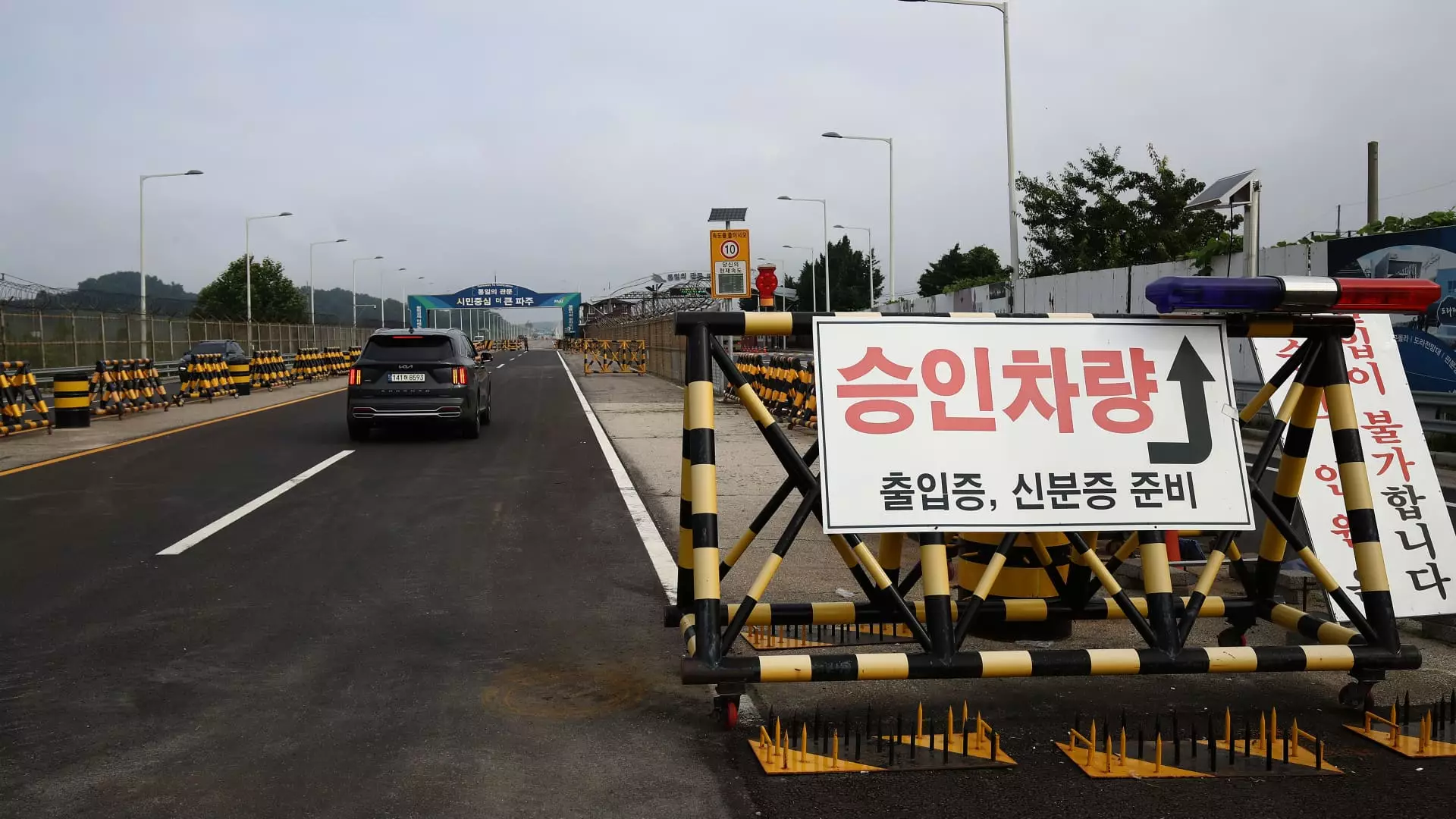North Korea caused a stir yesterday as it made its first comment on a recent incident involving a U.S. soldier, Travis King, who apparently crossed into North Korean territory. The state-run media, KCNA, claims that King “illegally intruded” into the Democratic People’s Republic of Korea (DPRK). According to Defense Secretary Lloyd Austin, King crossed the heavily fortified border between North and South Korea, known as the Demilitarized Zone, without authorization. However, it is important to critically analyze these claims and delve deeper into the situation.
The North Korean media alleges that King admitted to crossing into their territory. KCNA further states that King expressed his discontent with the U.S. Army, citing “inhuman maltreatment and racial discrimination” as his reasons for seeking refuge in North Korea or a third country. These claims, however, should be approached with caution, as they could not be immediately verified. It is essential to examine the source of these allegations, as KCNA is known to be a media mouthpiece for North Korea’s authoritarian government.
Travis King’s family, particularly his mother Claudia Gates, is understandably concerned for his safety. Jonathan Franks, a family spokesman, conveyed Gates’ worries and urged DPRK authorities to treat King humanely. The family also appreciates the efforts of the Department of Defense (DoD) in working to bring King home safely. The statements from King’s family shed light on the emotional impact this incident has had on those closest to him.
When approached for comment, the Department of Defense remained cautious about the validity of the alleged statements made by King. Defense Department spokesman Martin Meiners emphasized that these comments could not be verified and reassured the public that their priority remains King’s safe return. It is crucial to carefully consider and investigate the information presented by both KCNA and the Department of Defense in order to form an accurate understanding of the situation.
According to the Pentagon, United Nations Command made initial contact with North Korea regarding Travis King’s case. Brig. Gen. Patrick Ryder confirmed this communication but stated that no significant progress could be reported at that time. The ongoing diplomatic efforts between the involved parties underscore the complexity of the situation and the importance placed on resolving it peacefully.
The incident involving Travis King highlights the enduring tensions between North and South Korea, seventy years after the Korean War. While an armistice was signed in 1953, officially ending the fighting, no peace treaty has been established. North Korea has been consistent in its objections to joint military drills conducted by South Korea and the United States, often using them as a pretext for its own provocative actions. The country has repeatedly violated U.N. resolutions by launching ballistic missiles and conducting nuclear tests, resulting in continuous sanctions.
In light of the Travis King incident, it is crucial to approach the situation with a measured perspective. While concerns for his safety are valid, it is essential to wait for verified information to emerge. Diplomatic efforts must continue, fostering open communication between all parties involved. By adhering to established communication channels and dedicating themselves to a peaceful resolution, North Korea, South Korea, and the United States have an opportunity to not only bring King home safely but also pave the way for better relations in the future.
The alleged intrusion of Travis King into North Korean territory raises numerous questions and concerns. Critically analyzing the available information and considering the validity of the claims made by both KCNA and the Department of Defense is essential. The well-being and safe return of Travis King should remain the priority for all parties involved, and diplomatic efforts must persist to find a peaceful resolution to this incident. Only by examining all aspects of the situation can we hope to gain a comprehensive understanding and work towards a positive outcome.


Leave a Reply